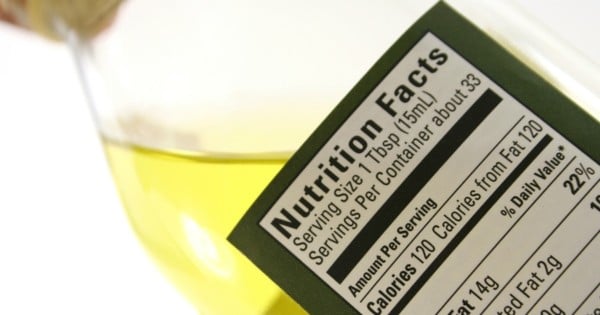
Light or “lite”, 99% fat-free, reduced fat, low fat, less fat, reduced calorie, low calorie, lean, extra lean – are products with these labels always healthier?
First, let’s talk about fat. Fat in foods and drinks is either unsaturated (monounsaturated or polyunsaturated, the latter as omega-3 or -6; or trans-fats), saturated.
These differ based on their chemical structures and properties, including whether they are “saturated” with more hydrogen atoms and are liquid or solid at room temperature. They also differ in their effects on human health.
In the early to mid-1900s, discoveries about the energy value of different macronutrients led to the establishment of “Atwater Factors”. These are standardised values of how much energy, or kJ/kcal/calories, a nutrient such as fat or carbohydrate provides to the human body.
Fat was assigned the highest value of 37 kilojoules per gram, indicating it provides the most energy per weight unit (gram) to the human body out of all the macronutrients (more than carbohydrates, protein and alcohol). As it was the most enery-dense, this contributed to a belief that a high-fat diet would lead to weight gain.


Top Comments
I'm an ex dietitian.... We eat full fat (except I like low fat milk). Too many low fat products are loaded with extra sugar to improve mouth feel. Eat the real thing, but be mindful of portion size... That's my advice.
When authors like David Gillespie wrote his book about fat and sugar saying that the whole low fat thing was unhealthy and vegetable oils are unnatural and that we eat too much sugar, he was crucified by the Dietitians Association of Australia...since he was attacked for saying sugar was the cause of obesity, we've seen the same messages a year or so later, to not drink sugary drinks, 'endorsed' by the dieticians and diabetes association and the heart foundation. The same message they said he had no right to tell people to do and that it was wrong. There is a gentle persuasion in the wording about eating more fat that implies it was us, the consumer, who was wrong about it all along....but it was 'official' advice to cut the fat, and to make children as young as two drink skim milk, (children need fats and underweight children more so) They perpetrated the myth that low fat eating wouldn't lead to obesity... interesting to see the 'quiet' way in which the carb serving sizes and serves were cut in the last overall of the healthy eating pyramid... another think David Gillespie said. All those who gave up their egg yolks and fatty foods and ate not enough fat, were deficient in vitamin A, the most important vitamin for preventing infections, and had too low intakes of choline, needed for brain function. Infections and depression followed.
And John Yudkin who came before David Gillespie, with his book 'Pure, white and deadly: the problem of sugar, (1972)' was ridiculed and attacked for suggesting it was sugar and not fat that was the problem.